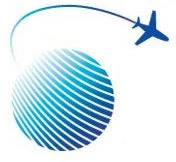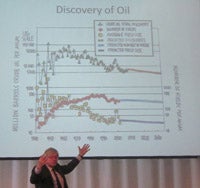 For several years, the World Bank, the International Civil Aviation Organization (ICAO), and the air transport industry met annually at a conference discussing issues concerning the air transport sector. The conclusions of these conferences are important as they guide the Bank’s aviation development agenda. For the fourth time, the Bank and ICAO were invited to host the event in the context of the World Route Development Forum, this year in Berlin.
For several years, the World Bank, the International Civil Aviation Organization (ICAO), and the air transport industry met annually at a conference discussing issues concerning the air transport sector. The conclusions of these conferences are important as they guide the Bank’s aviation development agenda. For the fourth time, the Bank and ICAO were invited to host the event in the context of the World Route Development Forum, this year in Berlin.
Where the air transport sector is headed – Quo Vadis? This was the question which was discussed during the World Route Development Strategy Summit in 18 different sessions, staffed with experts and leaders of the sector. The resulting report, which can be found on the Bank’s air transport website, depicts a picture of opportunities paired with challenges and turbulences ahead.
 One of the hottest themes was elaborated right at the beginning: taxing international aviation for various causes: the environment, development, or to fill empty public coffers. The panel complained that, while illegal under the Chicago Convention, international aviation was taxed $3.6 billion alone by the United Kingdom and Canada. The European Emissions Trading Scheme (ETS), to be introduced for aviation in 2012, was vehemently opposed by the panel, highlighting that besides only making up 2% of carbon emissions worldwide, the aviation industry is strongly committed to reducing carbon emissions by setting the CO2 reduction target to 1.5% annually and trying to cut net emissions in half by 2050. Prashant Sukul, Joint Secretary of the Ministry of Civil Aviation of India, went a step further by outlining a meeting held in India with major economic powers like China and the US to discussing the European ETS. This meeting concluded that the ETS presaged, both legally and policy wise, the coming of a discriminatory regime. A declaration was sent to the European Union, requesting a reconsideration of the EU ETS, while other measures [e.g. regulation prohibiting US carriers in participating in the ETS] are in preparation.
One of the hottest themes was elaborated right at the beginning: taxing international aviation for various causes: the environment, development, or to fill empty public coffers. The panel complained that, while illegal under the Chicago Convention, international aviation was taxed $3.6 billion alone by the United Kingdom and Canada. The European Emissions Trading Scheme (ETS), to be introduced for aviation in 2012, was vehemently opposed by the panel, highlighting that besides only making up 2% of carbon emissions worldwide, the aviation industry is strongly committed to reducing carbon emissions by setting the CO2 reduction target to 1.5% annually and trying to cut net emissions in half by 2050. Prashant Sukul, Joint Secretary of the Ministry of Civil Aviation of India, went a step further by outlining a meeting held in India with major economic powers like China and the US to discussing the European ETS. This meeting concluded that the ETS presaged, both legally and policy wise, the coming of a discriminatory regime. A declaration was sent to the European Union, requesting a reconsideration of the EU ETS, while other measures [e.g. regulation prohibiting US carriers in participating in the ETS] are in preparation.
 The future development of the industry was examined. The opportunities of airline alliances to gain further efficiencies for their members stood somewhat in contrast that many carriers of developing countries never make it into such an elite club. Low cost carriers, on the other hand, experience diminished comparative advantages the higher the fuel price rises, and their very thin profit margin is very sensitive to any increase in cost, be it from new taxes or other charges. Latin America and especially China were seen as markets that can still be expanded, but some mergers of carriers are necessary. Airports, on the other side, see their potential for business expansion in more direct routes, a tendency which is observed around the world.
The future development of the industry was examined. The opportunities of airline alliances to gain further efficiencies for their members stood somewhat in contrast that many carriers of developing countries never make it into such an elite club. Low cost carriers, on the other hand, experience diminished comparative advantages the higher the fuel price rises, and their very thin profit margin is very sensitive to any increase in cost, be it from new taxes or other charges. Latin America and especially China were seen as markets that can still be expanded, but some mergers of carriers are necessary. Airports, on the other side, see their potential for business expansion in more direct routes, a tendency which is observed around the world.
The economic importance of air transportation was highlighted during sessions on tourism. Route development should be supported by representatives of the tourism sector and governments (in some cases by targeted subsidies). Air Cargo, a key element in the logistics chain of a globalized world, was discussed, but the fact remains that the public and governments are little aware of its importance.
 A heated discussion emerged on the topic of security. Jim Marriot of ICAO warned that “it is a dangerous world out there!”, while he was countered that “in 10 years since 9/11 no passenger was killed on an international flight, and cost for security is rising by the billions”. Finally, the most sobering facts were elaborated during a discussion on fuel price volatility. Professor Aleklett of Uppsala University warned that the oil price will rise substantially, given the fact that conventional oil production cannot be sustained at today’s level and will decline soon due to depletion of easy accessible reserves. To the surprise to many, the International Energy Agency confirmed this notion, but liked it to the 450 scenario of the UN climate change measure necessary to limit global warming to two degrees.
A heated discussion emerged on the topic of security. Jim Marriot of ICAO warned that “it is a dangerous world out there!”, while he was countered that “in 10 years since 9/11 no passenger was killed on an international flight, and cost for security is rising by the billions”. Finally, the most sobering facts were elaborated during a discussion on fuel price volatility. Professor Aleklett of Uppsala University warned that the oil price will rise substantially, given the fact that conventional oil production cannot be sustained at today’s level and will decline soon due to depletion of easy accessible reserves. To the surprise to many, the International Energy Agency confirmed this notion, but liked it to the 450 scenario of the UN climate change measure necessary to limit global warming to two degrees.
The airline industry and aircraft manufactures may see strong growth over the next decades. However, certain issues raised during the summit suggest that the skies ahead are not as bright – responsible leaders, and smart navigators will be crucial to preserve an industry on which so much depends for the development of many nations.
Photos (from top):
BBC reporter Aaron Heslehurst moderating the session on air politics.
Professor Aleklett warning about global oil production.
A heated discussion on security.


 The future development of the industry was examined. The opportunities of airline alliances to gain further efficiencies for their members stood somewhat in contrast that many carriers of developing countries never make it into such an elite club. Low cost carriers, on the other hand, experience diminished comparative advantages the higher the fuel price rises, and their very thin profit margin is very sensitive to any increase in cost, be it from new taxes or other charges. Latin America and especially China were seen as markets that can still be expanded, but some mergers of carriers are necessary. Airports, on the other side, see their potential for business expansion in more direct routes, a tendency which is observed around the world.
The future development of the industry was examined. The opportunities of airline alliances to gain further efficiencies for their members stood somewhat in contrast that many carriers of developing countries never make it into such an elite club. Low cost carriers, on the other hand, experience diminished comparative advantages the higher the fuel price rises, and their very thin profit margin is very sensitive to any increase in cost, be it from new taxes or other charges. Latin America and especially China were seen as markets that can still be expanded, but some mergers of carriers are necessary. Airports, on the other side, see their potential for business expansion in more direct routes, a tendency which is observed around the world.


Join the Conversation